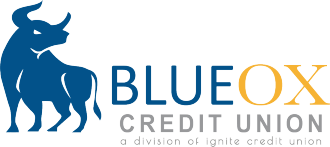how to stop living paycheck-to-paycheck
Did you know that 78% of American workers claim they live a paycheck-to-paycheck lifestyle? This means they are spending their entire paycheck before the next one is available. You'd be correct if you think this sounds like a stressful cycle! Although the bills are being covered every month, there is no room for an emergency and no future financial security. The good news is you don't have to stay in this situation! In fact, it only takes a few minor changes to your financial plan to get yourself out of the loop, such as:
creating a budget
According to financial experts, budgeting your money is essential to financial security! Because of this, the first step to ending a paycheck-to-paycheck lifestyle is creating a reliable budget. It’s tough to save, to avoid overspending, and to understand your spending habits without one. A budget will also allow you to establish emergency funds and reach your long-term financial goals!
Creating a proper budget will require you to thoroughly look at your finances and track your spending. This can not only be a time-consuming process - but it can also feel intimidating. That is entirely understandable! Setting time aside with a busy schedule can be challenging, and facing our financial situations is not always the most pleasant experience. Luckily, there are many helpful tools available to make the process easier! Check out these BlueOx blogs: Budgeting 101 and How to Save Money, for some great budgeting tips and tricks!
pro tip: When setting your budget, focus on your essential bills first. These include your food, utilities, housing, and transportation. Once you know these expenses are covered, you can begin allocating your money for everything else - like savings or entertainment. This will help ensure you don’t fall behind on your necessities and overspend on less critical areas!
cutting your spending
This could be as simple as making your coffee at home instead of going to the local café every day or canceling memberships that you no longer use. Maybe you could pack a picnic for lunch instead of going out to eat or ride your bike up to the store to limit how much you spend on gas. There are endless ways to cut spending - it all depends on your financial habits, needs, and goals!
use the 50/30/20 rule
The 50/30/20 rule is a simple and effective budgeting technique that helps people reach their financial goals. Basically, you break your paycheck down into three sections. 50% is allocated to paying your essential bills, 30% goes to your wants, such as new clothing or entertainment, and 20% goes into your savings account. This strategy ensures you cover all your bills and contribute to your savings. It's also a helpful tool you can use to cut unnecessary spending. If you discover you're purchasing more of your wants than you are putting away to save, it might be time to reevaluate your spending habits!
Cutting your spending is going to feel like a sacrifice at times. Remember that this is only a temporary solution until you're in a better financial position. It’s all about setting yourself up for success in the future. Once you have an established budget, money in your savings account, and have paid off some debt - you can relax or treat yourself! Just focus on getting yourself out of the paycheck-to-paycheck cycle first.
acquiring debt management skills
We often associate debt with negative consequences, stress, and the inability to get ahead financially. While it’s true that high amounts of debt can contribute to a paycheck-to-paycheck lifestyle, it doesn’t necessarily have to! In fact, purchasing a new home or opening a credit card can have many financial benefits, including improving your credit score, member perks, and wealth accumulation. How debt affects your financial situation depends on your ability to manage it and whether you have an effective plan for borrowing.
What is an effective borrowing plan? That's a great question! One aspect is to make sure you pay off your credit card balance every month. Meaning whatever you spend on your credit card is paid off in full by the next billing cycle. This is how you can avoid paying high-interest fees while still gaining the benefits of using a card – such as member perks, improving your credit score, and shopping rewards! If you find yourself unable to pay off your balance, you likely need to cut back on your spending. Using your credit card statements can be a helpful way to determine if this is happening!
Another important factor when borrowing money is to compare rates! It’s incredibly worthwhile to do this because the higher your interest rate, the more you'll pay in fees and interest over time. Take the time to research your options, and don’t be afraid to ask your financial advisors questions – they're there to help you!
pro tip: It’s never too late to learn debt management skills! Take advantage of free financial services, such as our partners at GreenPath Financial Wellness. They offer counseling, education, a credit report review, and more! Click the following link for more information:
being patient and staying motivated
Getting out of a paycheck-to-paycheck lifestyle isn’t going to happen overnight. It requires planning, researching, and making changes to your money management. Because of this, many people find themselves slipping into old habits - especially during moments when they are feeling busy or stressed. It’s essential to have a plan during these times to help you stay on track!
Keep your goals visible, like at your desk or in the kitchen, so you can be reminded of them often. Share your goals with a friend or family member to help hold you accountable. Also, don’t forget to celebrate the small wins! Whenever you pay off a bill or hit your next savings goal – give yourself a pat on the back. Changing your financial situation can be difficult at times, so you deserve to be your biggest cheerleader!
pro tip: The Snowball Method is a savings technique that can help you gain momentum initially! Basically, you figure out which account you owe the least to or could cancel first and focus on taking care of it first. This will give you the immediate reward of saving money and help you stay motivated – even if you’re not saving a significant amount!
what’s next?
Now that you’ve started saving, where should you put your funds? BlueOx Credit Union has you covered! Our savings accounts offer great returns and require no monthly services charge. We also offer Money Market Accounts with dividends paid monthly and Certificates! Click the following links to learn more:
« Return to "BlueOx Blog"

